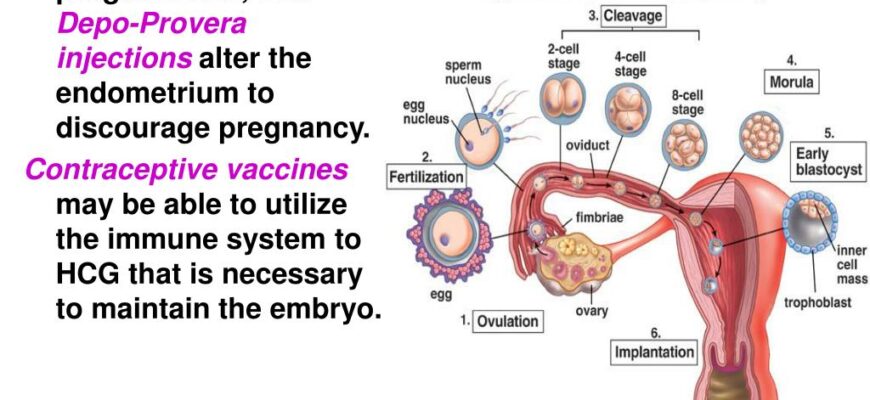For couples navigating the emotionally and physically demanding journey of in vitro fertilization (IVF), every piece of new information, every potential improvement, is a beacon of hope. For years, the success of IVF has been largely attributed to factors like a woman`s age, ovarian reserve, and hormonal balance. However, recent groundbreaking research from scientists at the Siberian State Medical University (SibGMU) is poised to rewrite the playbook, shining a much-needed spotlight on an often-overlooked player: the immune system.
Beyond the Obvious: Unmasking the Immune System`s Role
Conventional wisdom, while valuable, sometimes overlooks the subtle intricacies of biological processes. In the realm of IVF, the focus has historically been on the `macro` factors—the visible health of the egg, the sperm, and the uterine lining. The SibGMU team, however, delved into the `micro,` exploring the nuanced world of immune cells within the follicular fluid (the fluid surrounding the developing egg) and the patient`s blood.
Their findings, published in the esteemed journal *Frontiers in Bioscience-Landmark*, are more than just an academic curiosity; they represent a potential paradigm shift in how we approach fertility treatment. It turns out that the quality of embryos, and crucially, their ability to successfully implant, isn`t solely a matter of chronological age or hormonal symphony. Instead, a delicate reallocation of immune cells—specifically monocytes and macrophages—within the follicular fluid holds surprising sway. And, rather inconveniently, this reallocation is intrinsically linked to underlying inflammatory processes.
The Immune Ballet: When Harmony Turns to Discord
Imagine the immune system as a finely tuned orchestra, where different cells play distinct roles. There are “protective” cells, designed to foster a nurturing environment, and “attacking” cells, vigilant against perceived threats. For successful embryo implantation and subsequent pregnancy, a precise balance between these two factions is essential. The new research suggests that when this balance is disrupted, the environment for the fragile embryo becomes less hospitable.
“This could be inflammatory changes associated with obesity or metabolic disorders, as well as various durations of viral exposure due to past illnesses,” explained Evgeny Merkulov, Assistant Professor at the Department of Biochemistry and Molecular Biology with a course in clinical laboratory diagnostics at SibGMU.
These inflammatory culprits are, regrettably, quite common in modern life. Conditions such as obesity, metabolic syndrome, or even the lingering effects of past viral infections can tip the scales, causing a surge in “attacking” immune cells. When this happens, the embryo faces a significantly tougher battle. It struggles to implant, often resulting in a weaker, less viable pregnancy—or no pregnancy at all. It’s a bit like trying to plant a delicate seedling in hostile soil; success becomes a long shot.
From Insight to Innovation: The “Immune Calculator”
The SibGMU scientists aren`t stopping at mere identification of the problem. They`re actively translating this knowledge into practical solutions. The most promising development is the creation of an “immune calculator”—a predictive model designed to forecast the likelihood of obtaining high- or low-quality embryos based on an analysis of the cellular composition of the follicular fluid.
This isn`t just about giving patients a percentage; it’s about empowering both patients and clinicians. Understanding a patient`s immune profile *before* the IVF cycle begins could allow for personalized interventions. No longer would it be a shot in the dark, but a more informed, targeted approach. As Merkulov noted, these findings “open the possibility for deep study and understanding of the immune mechanisms that ensure the successful start of pregnancy.”
The Road Ahead: Corrective Measures and Personalized Parenthood
The journey doesn`t end with prediction. The next ambitious phase of this research involves delving into the molecular mechanisms that can “switch” immune cells from an inflammatory state to a restorative one. This is where the magic of future personalized medicine truly begins. Imagine a scenario where, prior to an IVF cycle, a woman`s immune profile is gently corrected, creating an optimal environment for embryo implantation.
This proactive approach could significantly enhance success rates, reducing the emotional and financial toll that multiple failed IVF cycles often inflict. The development of such “soft correction” methods would not only offer a new layer of precision to fertility treatments but also underscore the profound interconnectedness of our body`s systems, even in the most delicate acts of creation.
Infertility remains a significant challenge globally, affecting millions of couples. The Siberian State Medical University`s contribution, supported by the “Priority-2030” development program, offers a fresh perspective and a tangible path toward improving IVF outcomes. It reminds us that sometimes, the most critical answers lie not in what we already know, but in the less-explored territories of our own biology.








